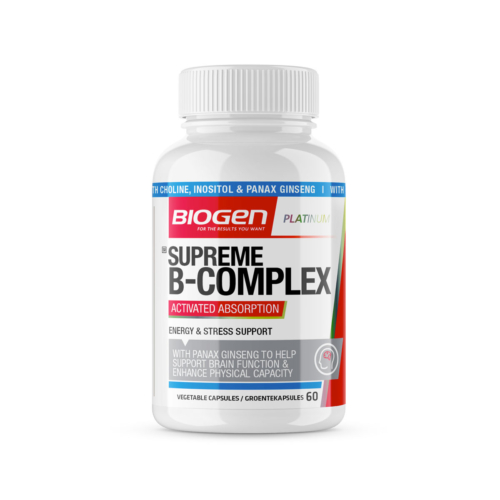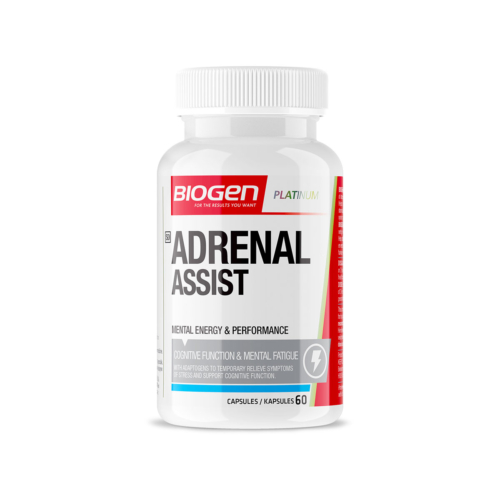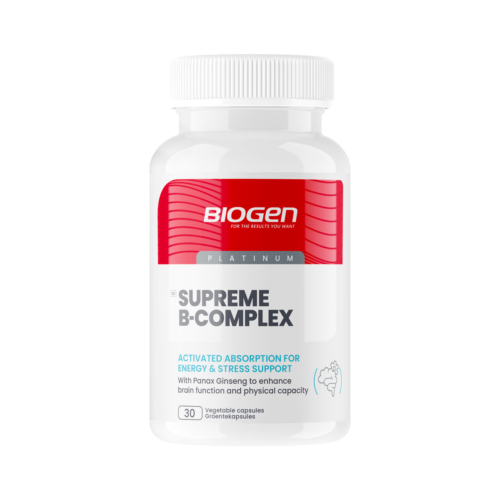
How brain fog and burnout are connected – and what you can do about it
Do you wake up feeling foggy and frazzled, only to stumble through your day, reading the same email over and over, stumbling over common words, forgetting where you left your car keys, or feeling so overwhelmed and exhausted that you can’t think straight?
If that describes your typical day, then you already know all about brain fog. While this all-too-common cognitive confusion affects many people, the underlying causes are typically varied and interrelated.
Often, it’s more than just a bad night’s sleep, a sugar crash, or hormonal havoc. Brain fog can also indicate that your stress levels have spilt over into burnout.
The Link Between Brain Fog and Burnout
Burnout is more than just feeling tired; it’s a state of emotional, physical, and mental exhaustion that often occurs due to prolonged exposure to high levels of stress¹.
It often stems from a demanding job, but financial worries, overtraining, intense family commitments, or other chronic stressors can also trigger it.
When you’re burned out, your body’s stress response system goes into overdrive. This constant state of high alert floods your brain with the stress hormone cortisol.
Over time, high cortisol levels can damage the part of your brain crucial for memory and learning known as the hippocampus2². This damage can manifest as the classic symptoms of brain fog, such as:
- Difficulty concentrating
- Memory lapses
- Feeling mentally sluggish
A vicious cycle
In any discussion related to brain fog, it is important to clarify that it isn’t a medical condition itself. Instead, it’s a term used to describe a collection of symptoms that affect your ability to think, focus, and remember.
It’s also part of a vicious cycle: chronic stress leads to burnout, which floods your brain with chemicals that cause brain fog. The brain fog, in turn, makes it even harder to manage your stressful situation, leading to more stress and a deeper state of burnout.
Clear the fog
So how do you blow out the cognitive cobwebs and reset your brain’s operating system to clear the fogginess?
For many people who don’t suffer from underlying medical conditions that cause brain fog, they can manage and possibly bring their blurry mind back into focus with a few of these lifestyle tweaks:
Fighting fog with supplements
Stacking supplements specifically formulated to support our body’s natural stress response can also support your efforts to destress, avoid burnout and clear the mental haze.
A combination of vitamins, minerals, adaptogenic herbs, and nootropic ingredients offers an ideal combination to dissipate the fog alongside your other efforts.
Products like Biogen Adrenal Assist and Biogen Ashwagandha Root contain natural botanical and herbal ingredients, vitamins and minerals that support our nervous and hormonal systems or work to reduce tension, irritability, nervousness, restlessness and mild anxiousness.
The ingredients in these products include adaptogens, which are substances that increase the body’s ability to resist and adapt to mental and physical stress by helping to restore balance in the nervous and endocrine systems, usually without any physiological disturbance, side effects or toxicity.
Alongside these stress-supporting vitamins and herbal extracts, magnesium is a vital mineral that offers additional support to tackle stress and fatigue. It plays a role in over 300 biochemical reactions, including energy production.
From a supplement perspective, magnesium glycinate is one of the most bioavailable forms. Including a product like Biogen Magnesium Glycinate in your daily regimen contributes to normal energy metabolism and nerve function, helping to reduce tiredness and fatigue. It can also help ease tension and improve sleep quality, which is vital for boosting productivity without burning out.
You can also support brain function and enhance physical capacity with Biogen Supreme B Complex, which includes activated B-vitamins to increase absorption and deliver these important nutrients in a form that can cross the blood-brain barrier.
The specific B-vitamins in the formulation work synergistically to support mental focus and cognitive function to potentially improve brain health and reduce the risk of neurodegeneration, while also supporting energy production and stress reduction to help address the tiredness and fatigue that often accompany brain fog.
If you’re experiencing brain fog or suspect you may suffer from burnout, it is best to consult with a qualified healthcare professional, who can provide a diagnosis and provide individualised medical advice.
References:
- Edú-Valsania S, Laguía A, Moriano JA. Burnout: A Review of Theory and Measurement. Int J Environ Res Public Health. 2022 Feb 4;19(3):1780. doi: 10.3390/ijerph19031780. PMID: 35162802; PMCID: PMC8834764.
- Kim EJ, Pellman B, Kim JJ. Stress effects on the hippocampus: a critical review. Learn Mem. 2015 Aug 18;22(9):411-6. doi: 10.1101/lm.037291.114. PMID: 26286651; PMCID: PMC4561403.
















